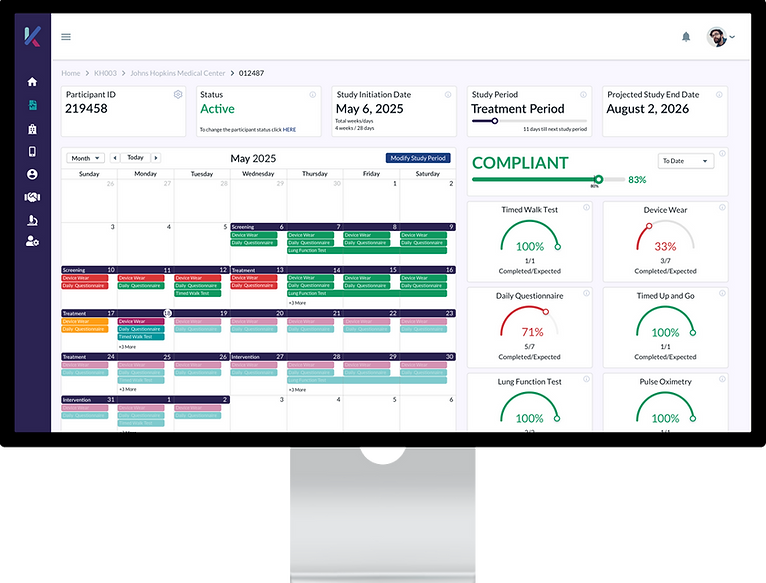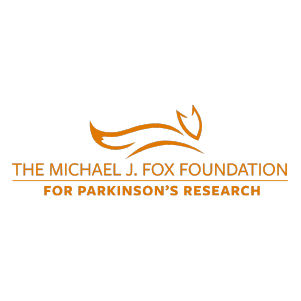
— Not just endpoints - impact —
We Redefined How Clinical Evidence is Generated - Digitally, Remotely, and Intelligently

Koneksa began as a pioneer in digital biomarkers — proving the value of our approach by designing and executing clinical studies.
.png)





Today, our platform unlocks new signals in complex, multimodal datasets—
integrating digital biomarkers, wearable sensors, and traditional clinical data. We go beyond endpoints to deliver insights that improve trial design, accelerate decision-making, and deepen understanding of disease.

— Who We Are —
Your Clinical Data Innovation Partner
Koneksa Health accelerates drug development by powering evidence generation across clinical trials and real-world settings.
-
We design and support studies end-to-end—integrating traditional biomarkers and generating digital biomarkers to uncover new signals in complex clinical data.
-
Our proprietary platform enables remote, patient-centric data collection via wearables and mobile tech, delivering validated digital endpoints across multiple therapeutic areas.
-
Backed by expert services in science, regulatory, and data analytics, we optimize trial design, streamline data pipelines, and develop models that drive smarter, faster clinical decisions.




— What We Offer —
Solutions That Move Medicine -
Faster, Smarter, Further
Clinical Trial
Design & Execution
Design and execute remote-first, patient-centric trials that enhance retention, reduce burden, and unlock new and greater insights.
Professional
Services
Partner with our scientific, clinical, and regulatory experts to design, implement, and validate digital strategies across the drug development lifecycle.
Digital
Endpoints
Capture continuous, real-world data using validated measures built for regulatory confidence and scientific rigor.
Data Science,
AI/ML, and
Statistical Services
Unlock deeper insights from complex longitudinal datasets through advanced analytics, machine learning models, predictive algorithms, and rigorous statistical analysis - optimized for decision-making.
Analog
Endpoints
Integrate traditional clinical measures—such as lab tests, imaging, and functional assessments—into a unified data stream alongside digital biomarkers to create a holistic, multimodal evidence package.
SaaS Platform
Licensing
Deploy our flexible, sensor-agnostic platform to operationalize digital endpoints- with optional modules for data science consulting, custom algorithm integration, and regulatory reporting.

Access to and Generation of Multimodal Data Sets
We design and integrate multimodal data from both traditional and digital clinical studies—including outputs from mobile apps, wearables, and conventional trial measures—
into scalable pipelines for analysis, export, and new signal discovery.
Co-develop a model
License Koneksa's models
Bring your own model
The Koneksa Platform is designed to support flexible and regulatory-aligned evidence generation

Impact and Outcomes Enabled by Koneksa's Multimodal Data Platform
Novel
Algorithms to Predict Disease Progression
Advanced modeling enables earlier and more accurate insights into patient trajectories.
Faster,
Smarter Trials
Efficient data pipelines accelerate trial timelines and decision-making.
Patient-
Enriched Trial
Design
Smarter stratification and eligibility criteria increase relevance and impact.
Therapeutic
Impact
Supported 50+ clinical programs across neurology, oncology, respiratory, and rare diseases.
Improved Signal
Detection and Statistical Power
Frequent high-precision measures reduces noise and enhances results clarity
Evidence
Generation
Peer-reviewed publications, posters and intellectual property items.
Greater Study Participant Engagement
Seamless digital integration improves adherence and data completeness.
Adoption by
Industry Leaders
Trusted by leading biopharma, CROs, and academic research consortia.
— Case Study —
How Our Models Help Predict Parkinson’s Risk
In partnership with the Michael J. Fox Foundation and Verily, we supported an initiative to detect early Parkinson’s risk using smartwatch-derived features
-
The dataset included 32 TB of smartwatch data -
(150,000 files from 350 participants).
-
Our team developed a composite machine learning predictor that effectively stratified individuals into high- and low-risk groups.
-
The resulting digital risk index predicted clinical test outcomes and supported identification of individuals at elevated risk for targeted intervention.


-
Our scaled compute allowed 10 - 20x faster delivery of extracted insights
Data Sources
Extracted Physiological Features
Activity
Gait
Vital Signs
Sleep
Integrated Machine Learning Model
Development of Risk Index
Risk is Associated with Clinical Severity
See the Science in Action

MANUSCRIPT
Impacts On Study Design When Implementing Digital Measures In Parkinson's Disease-Modifying Therapy Trials:
MANUSCRIPT
A Proposed Multi-Domain, Digital Model For Capturing Functional Status And Health-Related Quality Of Life In Oncology:
MANUSCRIPT
A Patient Centric Model For Vaso-Occlusive Crises In Sickle Cell Disease — Outcomes Of A Consensus Exercise Conducted Across Patients And Experts
Select Clients and Partners
































